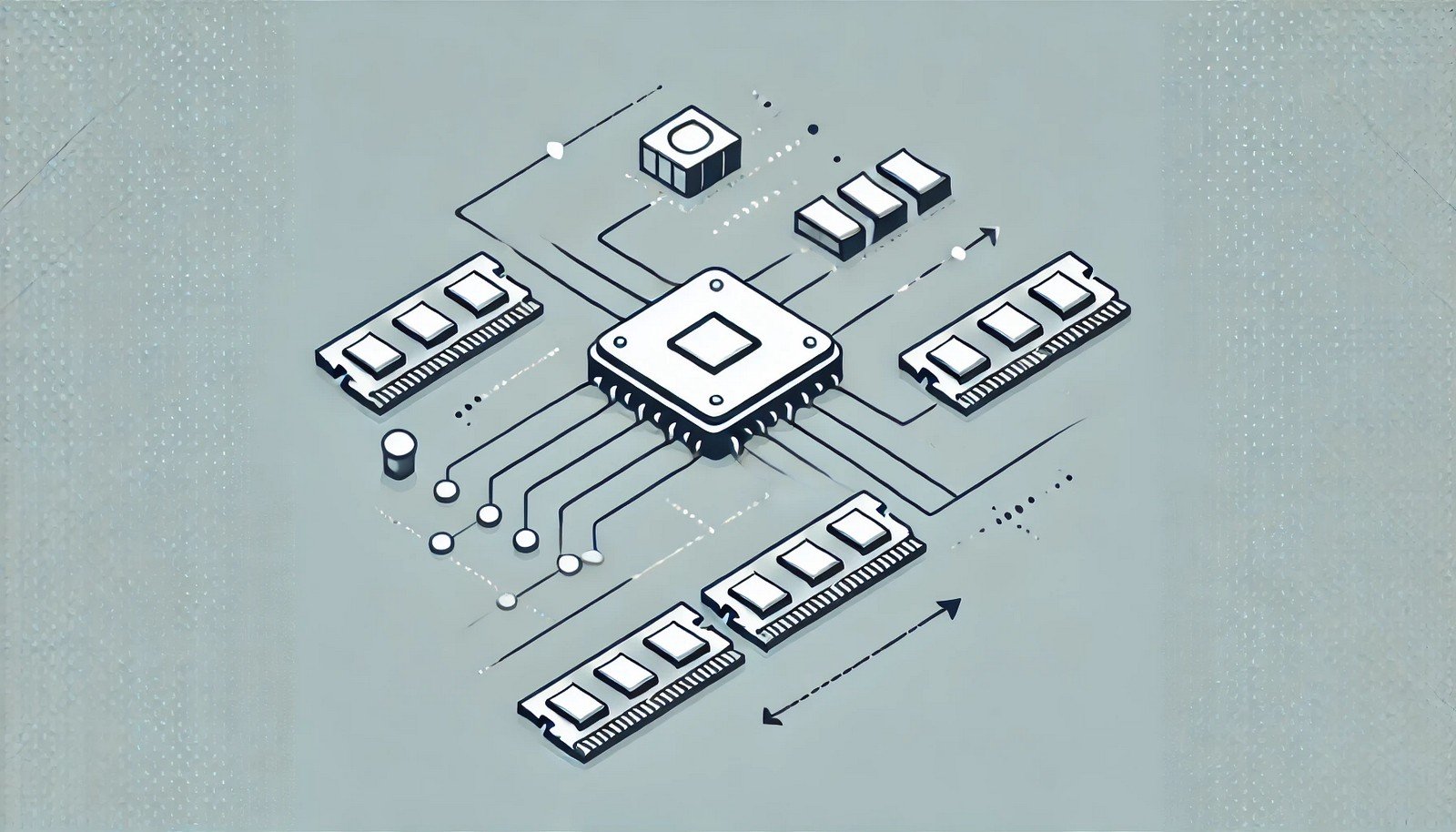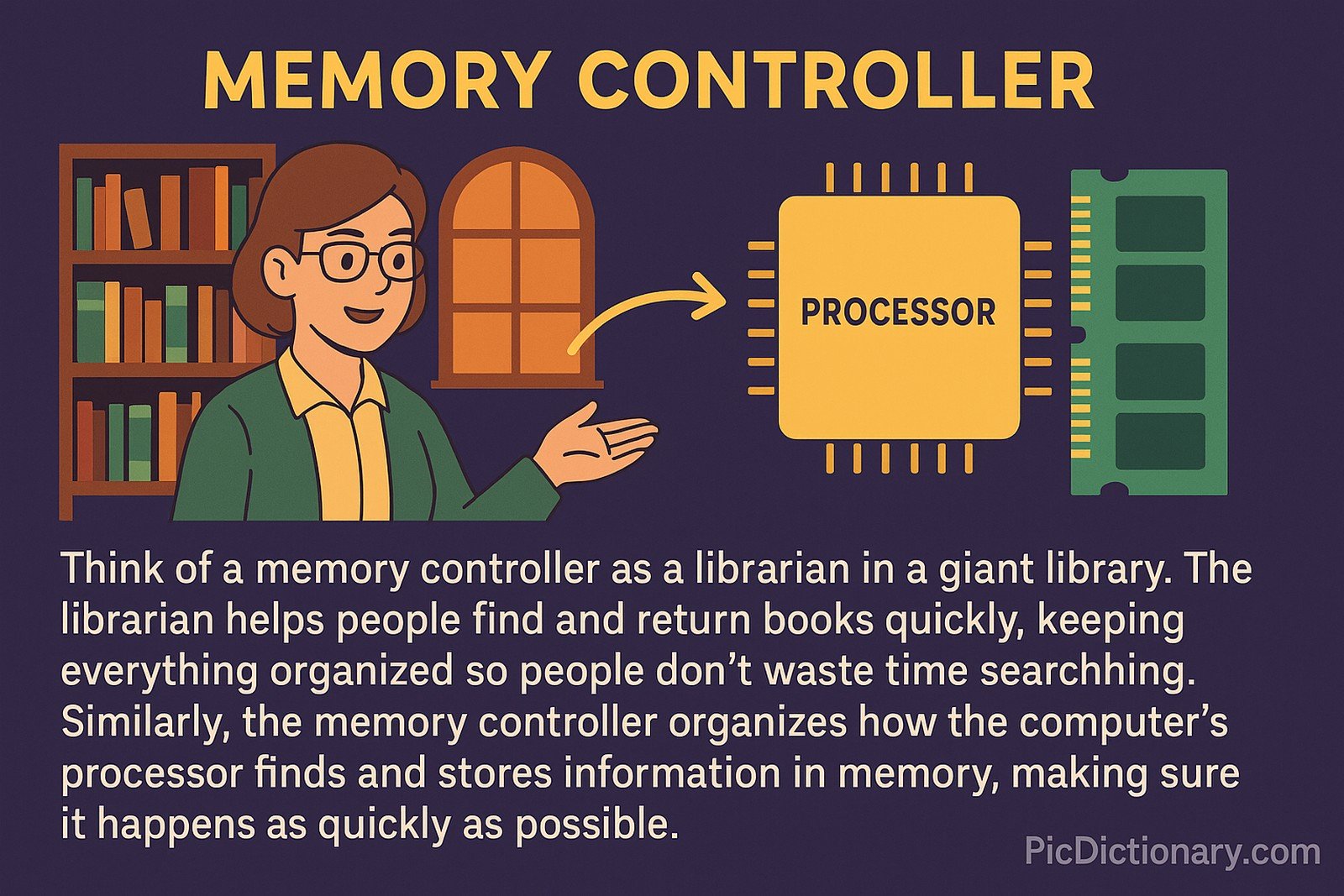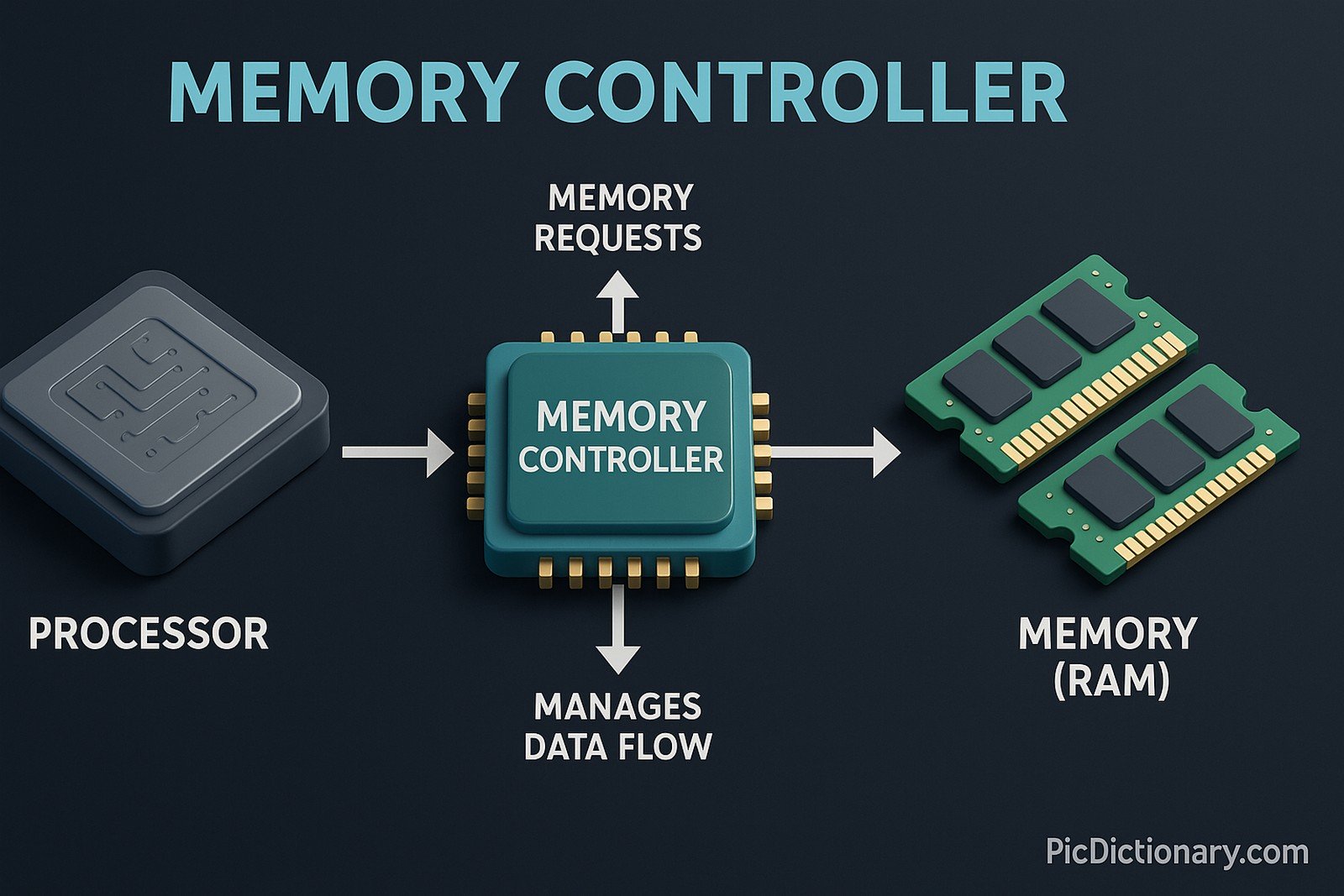Memory Controller
 (Representational Image | Source: Dall-E)
(Representational Image | Source: Dall-E)
Quick Navigation:
- Memory Controller Definition
- Memory Controller Explained Easy
- Memory Controller Origin
- Memory Controller Etymology
- Memory Controller Usage Trends
- Memory Controller Usage
- Memory Controller Examples in Context
- Memory Controller FAQ
- Memory Controller Related Words
Memory Controller Definition
A memory controller is a digital circuit that manages the flow of data between a computer's memory (RAM) and the processor. It ensures efficient read and write operations by handling memory requests, optimizing access speeds, and managing memory refresh cycles. Modern memory controllers are integrated into the CPU or chipset, improving performance by reducing latency and increasing data throughput.
Memory Controller Explained Easy
Think of a memory controller as a librarian in a giant library. The librarian helps people find and return books quickly, keeping everything organized so people don’t waste time searching. Similarly, the memory controller organizes how the computer’s processor finds and stores information in memory, making sure it happens as quickly as possible.
Memory Controller Origin
The concept of a memory controller dates back to early computing systems in the 1960s, when memory access was managed manually by the processor. Over time, dedicated memory controllers were developed to handle growing data processing needs.
Memory Controller Etymology
The term "memory controller" comes from the combination of "memory," referring to computer storage, and "controller," which signifies a device responsible for managing a specific function.
Memory Controller Usage Trends
Memory controllers have seen significant advancements with the rise of high-speed computing and AI-driven workloads. The integration of memory controllers directly into CPUs has improved efficiency, while new memory technologies like LPDDR5 and HBM have enhanced data transfer rates.
Memory Controller Usage
- Formal/Technical Tagging:
- Computer Architecture
- Embedded Systems
- High-Performance Computing - Typical Collocations:
- "integrated memory controller"
- "dual-channel memory controller"
- "memory controller optimization"
Memory Controller Examples in Context
- A modern CPU with an integrated memory controller improves system performance by reducing latency.
- High-end gaming PCs rely on advanced memory controllers to handle large amounts of data processing.
- Data centers utilize memory controllers to manage RAM efficiently in high-performance computing environments.
Memory Controller FAQ
- What is a memory controller?
A memory controller is a component that manages communication between the processor and memory. - How does a memory controller improve performance?
By efficiently handling memory requests, memory controllers enhance system speed. - What types of memory do memory controllers support?
They support DDR4, DDR5, LPDDR5, and HBM. - Can a faulty memory controller cause crashes?
Yes, it can lead to memory errors, crashes, and data corruption. - How does a memory controller affect gaming performance?
It reduces lag and improves loading times in high-performance games.

Memory Controller Related Words
- Categories/Topics:
- Computer Hardware
- Memory Management
- System Architecture
Did you know?
Modern memory controllers play a crucial role in cloud computing, helping data centers manage massive amounts of information efficiently.
PicDictionary.com is an online dictionary in pictures. If you have questions or suggestions, please reach out to us on WhatsApp or Twitter.Authors | Arjun Vishnu | @ArjunAndVishnu

I am Vishnu. I like AI, Linux, Single Board Computers, and Cloud Computing. I create the web & video content, and I also write for popular websites.
My younger brother, Arjun handles image & video editing. Together, we run a YouTube Channel that's focused on reviewing gadgets and explaining technology.



Comments powered by CComment